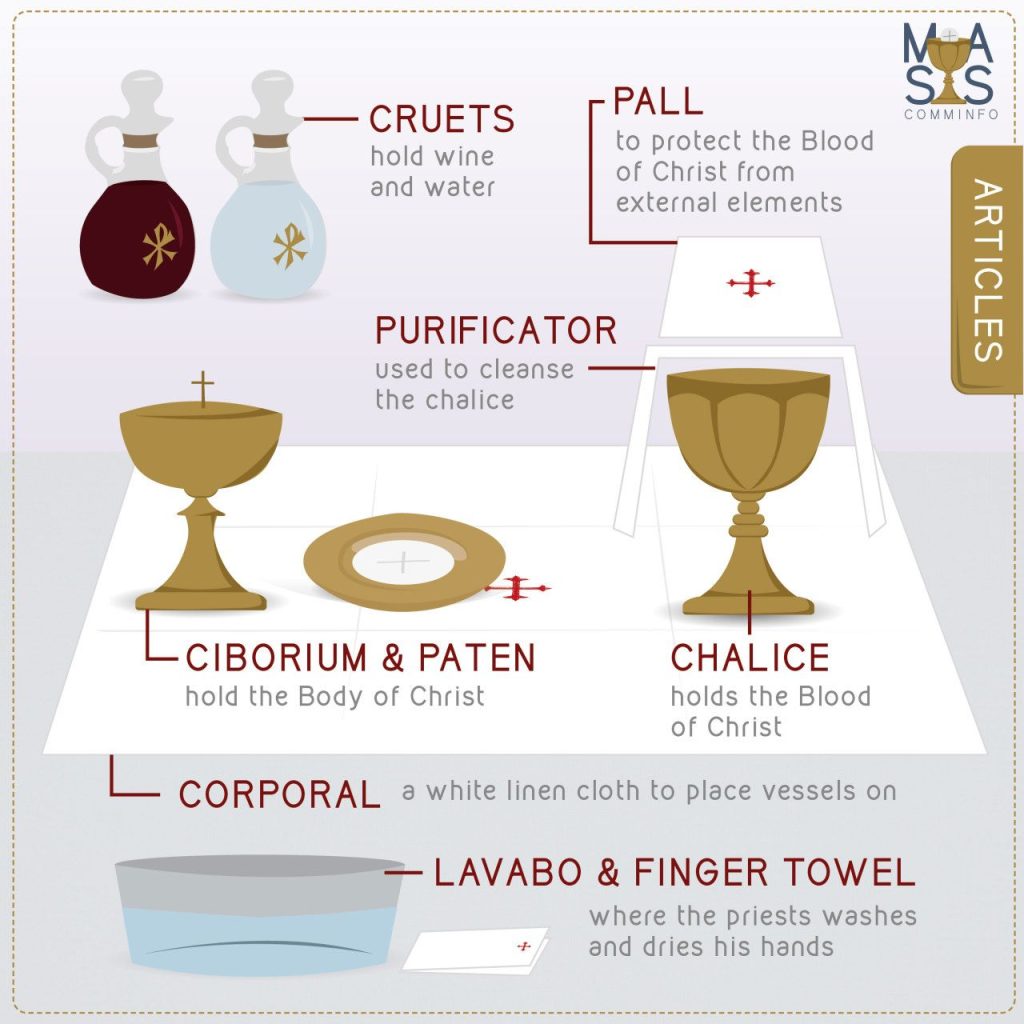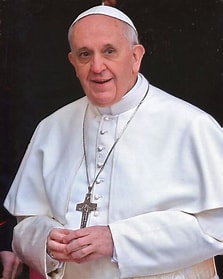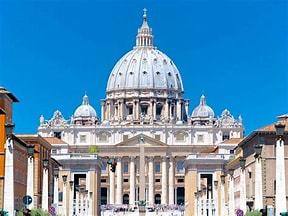Catholicism is the Christian faith, tradition, and practices followed by the Roman Catholic Church, which is the largest Christian denomination in the world, with over a billion members. The term “Catholic” comes from the Greek word “katholikos,” meaning “universal.” The Church considers itself the one, holy, catholic, and apostolic Church, claiming an unbroken line of leadership back to the apostles of Jesus Christ.
Here’s an overview of key aspects of Catholicism:
1. Beliefs and Doctrine
God
Catholics believe in one God in three persons, known as the Holy Trinity: God the Father, God the Son (Jesus Christ), and God the Holy Spirit.
Jesus Christ
Catholics believe that Jesus Christ is the Son of God, fully divine and fully human. They believe in his Incarnation (God becoming man), his Crucifixion for the sins of humanity, and his Resurrection from the dead, which provides the basis for the salvation of all people.
The Bible
Catholics hold the Bible (both Old and New Testaments) as sacred scripture. The Catholic Bible includes 73 books, with the Old Testament containing 46 books, including the Deuterocanonical books (such as Tobit, Judith, 1 and 2 Maccabees), which are not part of most Protestant Bibles.
The Church and Tradition
The Church is believed to be founded by Jesus Christ through St. Peter, regarded as the first pope. Catholics believe in the authority of the Church to interpret the Bible and guide the faithful. Sacred Tradition, alongside the Bible, forms the basis of Catholic teaching.
The Sacraments
Catholics believe in seven sacraments, which are outward signs of inward grace, instituted by Christ. These are:
- Baptism: Initiation into the Christian faith.
- Eucharist: Receiving the body and blood of Christ during Mass (also called Communion).
- Confirmation: Strengthening of faith, typically administered to adolescents.
- Reconciliation: Also called Confession, a sacrament for the forgiveness of sins.
- Anointing of the Sick: Blessing and healing for those suffering serious illness or nearing death.
- Holy Matrimony: The sacrament of marriage.
- Holy Orders: The ordination of priests, bishops, and deacons.

Mary and the Saints
Catholics hold Mary, the mother of Jesus, in special veneration as the Mother of God. She is honored with various titles, such as the Immaculate Conception, the Assumption, and Queen of Heaven. Catholics also venerate saints, holy men and women who lived exemplary Christian lives, and believe they can intercede on behalf of the faithful.
Purgatory
Purgatory is a state of purification for souls who have died in God’s grace but need further purification before entering heaven. Catholics believe that prayers for the dead, especially during Mass, can assist souls in purgatory.
2. Worship and Practices
The Mass
The Mass is the central act of worship in Catholicism, where Catholics participate in the Eucharist, or Holy Communion. It includes prayers, readings from the Bible, a sermon, and the consecration of the bread and wine into the body and blood of Christ. Mass can be held daily, but Sundays and holy days of obligation are especially important for Catholics.
Prayer
Catholics practice various forms of prayer, including personal prayers, the Rosary (prayers focused on the life of Christ and Mary), novenas (nine-day prayers for special intentions), and the Liturgy of the Hours (daily prayers said by clergy and many laypeople). Prayers are often directed to God, but Catholics also ask for the intercession of Mary and the saints.
The Liturgical Year
The Catholic Church follows a liturgical calendar that includes seasons of preparation, celebration, and reflection:
- Advent: Preparation for the birth of Christ at Christmas.
- Christmas: Celebration of the Nativity of Christ.
- Lent: A 40-day period of penance and fasting leading up to Easter.
- Easter: The most important Christian holiday, celebrating the Resurrection of Jesus.
- Ordinary Time: Periods between these seasons, focusing on the teachings and miracles of Jesus.
Fasting and Abstinence
Catholics are required to fast and abstain from meat on Ash Wednesday and Good Friday, and to abstain from meat on Fridays during Lent. Fasting is also encouraged as a spiritual discipline at other times of the year.
3. Ethics and Morality
Catholic morality is based on the Ten Commandments and the teachings of Jesus. The Church teaches the sanctity of life, the importance of charity, and upholds the dignity of every human being. Key moral issues include:
- Sanctity of Life: The Church opposes abortion, euthanasia, and capital punishment, advocating for the protection of life from conception until natural death.
- Sexual Morality: Catholics believe that sex should be reserved for marriage between a man and a woman. The Church opposes contraception, same-sex marriage, and premarital sex.
- Social Justice: The Catholic Church has a strong tradition of advocating for the poor, oppressed, and marginalized. It supports efforts toward economic justice, environmental stewardship, and the protection of workers’ rights.
4. Leadership and Structure
The Pope
The Pope, as the Bishop of Rome, is the spiritual leader of the Roman Catholic Church and is considered the successor to St. Peter. He is the highest authority in matters of faith and morality and holds the title of the “Vicar of Christ.” The current pope, as of 2024, is Pope Francis.
The Bishops and Clergy
Catholics are led by bishops, who oversee dioceses (regional churches) and are successors of the apostles. Priests serve under bishops, leading individual parishes and administering the sacraments. Deacons assist in various roles, such as preaching and serving the community.

5. Catholic Social Teaching
Catholic Social Teaching encompasses the Church’s teachings on human dignity, social justice, and the common good. It includes principles such as:
- Dignity of the Human Person: Every person is valuable and worthy of respect.
- Solidarity: Standing together with those in need and advocating for justice.
- Care for Creation: Stewardship of the environment.
- Preferential Option for the Poor: Prioritizing the needs of the poor and vulnerable.
6. Global Influence
Catholicism has played a significant role in world history, including the shaping of Western civilization. The Church has been influential in education (founding many schools and universities), healthcare (running hospitals), and social services (through charities). It has also been involved in diplomacy, global politics, and peacebuilding.
Catholicism is diverse, with various rites and cultural expressions. While most Catholics follow the Latin Rite (Roman Catholic Church), there are also 23 Eastern Catholic Churches that are in communion with the Pope but follow different liturgical traditions.
7. Vatican City
Vatican City is an independent city-state and the spiritual and administrative center of the Roman Catholic Church. It is the smallest country in the world and home to the Pope. The Vatican houses important religious and cultural treasures, such as St. Peter’s Basilica, the Sistine Chapel, and the Vatican Museums.

Conclusion
Catholicism is a rich and complex tradition that centers on faith in Jesus Christ and the teachings of the Church. It encompasses a wide array of beliefs, practices, and moral teachings that have developed over centuries, shaping the spiritual lives of millions worldwide.




Leave a Reply